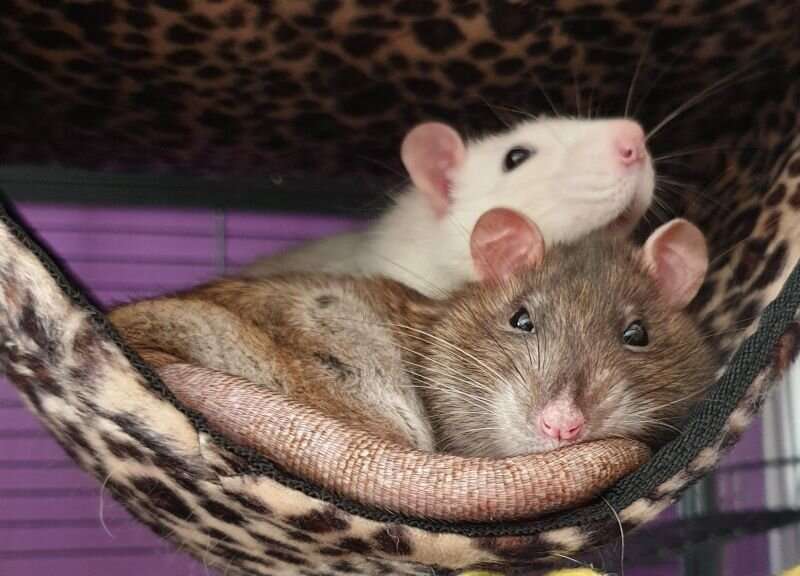New study shows rats can make friends

Rats choose carefully who they spend time with, according to a new study published today. Published by researchers from the Universities of Portsmouth and Lincoln, the study found that male rats have preferred partners in their groups and they decide who to avoid, too.
Previous research found that female rats didn't form friendships with other females, so this paper's findings are surprising.
Dr. Leanne Proops, from the University of Portsmouth's Department of Psychology, said that "discovering that male rats don't associate with other rats randomly, but seek out their preferred cage mates and actively avoid others, shows that rats are similar in this respect to other species like birds, primates and bats."
Dr. Teresa Romero, from the University of Lincoln's School of Life Sciences, added that "what's particularly interesting about this work is that it contrasts to the limited evidence available on social behavior in rats and therefore has important implications for the management and welfare of captive rat populations."
The researchers observed the behavior of 27 male rats in four groups over a three-month period by video recording them while they were in their enclosures during daylight hours.
Although rats have been described as primarily nocturnal, they can also be active during the day. The researchers observed every two minutes whether the rats were in close body contact or near each other while resting or having friendly interactions.
They also assessed how stable these preferences were by comparing with whom they spent time at the beginning and at the end of the study, and found that male rats can maintain these preferences over time, for a period of a few months at least.
Dr. Romero said that they've "known for some time that animals like baboons, horses and house mice form same-sex friendships, which positively affects their reproductive success and their lifespan. Yet—despite 150 years of breeding rats—we still know surprisingly little about their natural social behavior or organization."
Animals can develop social preferences for particular group mates depending on a number of factors. For example: giraffes and some primates form bonds with their family members; the racoon-like coati becomes friends with those similar in age; and brown capuchin monkeys often choose friends for their personality traits.
"There are more than 20 million domestic rats across the world, with same-sex housing often being the norm for pet rats, and our results can have important implications for the management and welfare of these populations," said Dr. Proops.
More information: Leanne Proops et al, Non-random associations in group housed rats (Rattus norvegicus), Scientific Reports (2021). DOI: 10.1038/s41598-021-94608-4
Journal information: Scientific Reports
Provided by University of Portsmouth



















